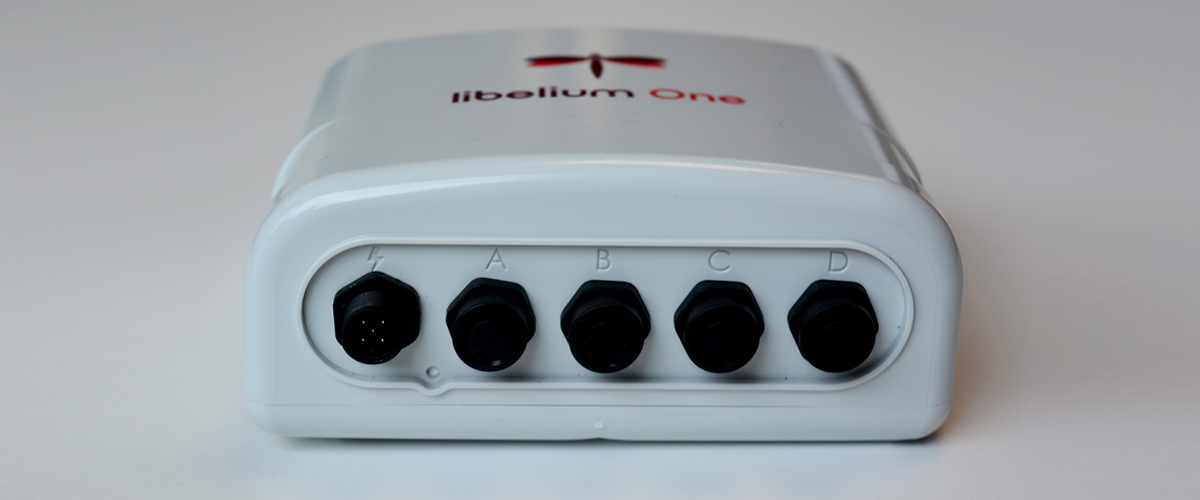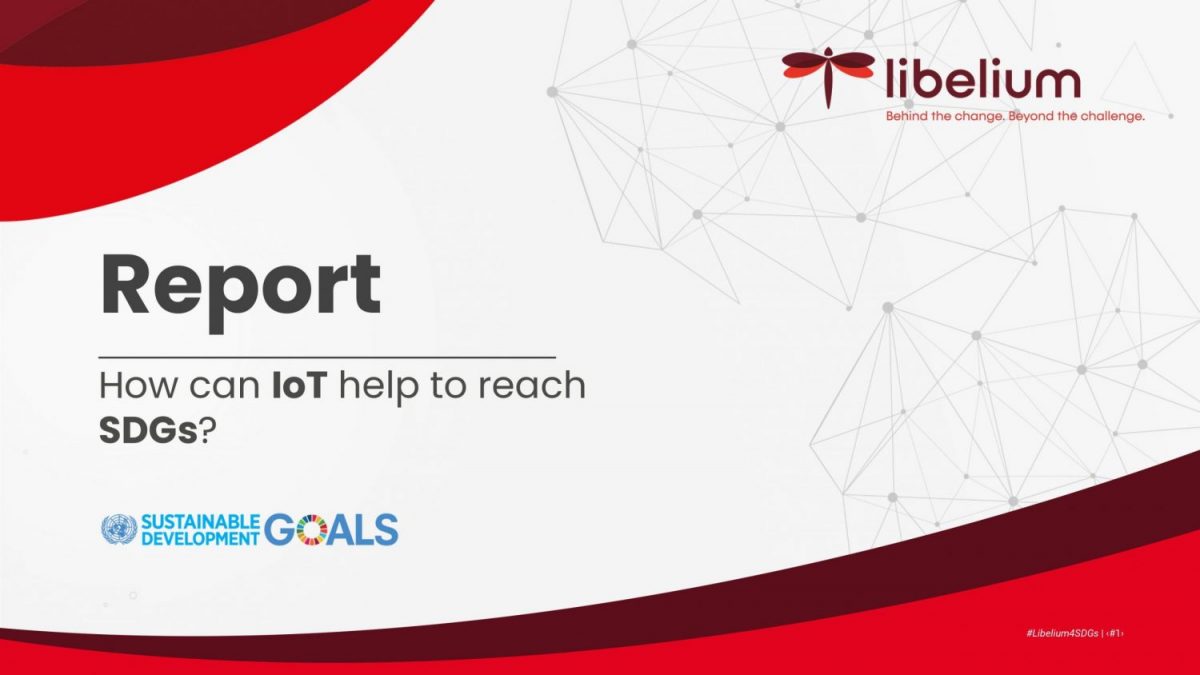How IoT can drive urban resilience, sustainability, and citizen well-being
We apply technology to improve our well-being: in the cleanliness of cities by improving waste collection processes; in public safety by personalizing access to public buildings and facilities; or in the maximum quality of the environment, monitoring the levels of parameters that are harmful to the health of citizens in the air or water.
IoT technology is an ally of people in their quest for the highest possible quality of life. And it always helps in the most efficient, simple and footprint-free way for the well-being of people in cities.
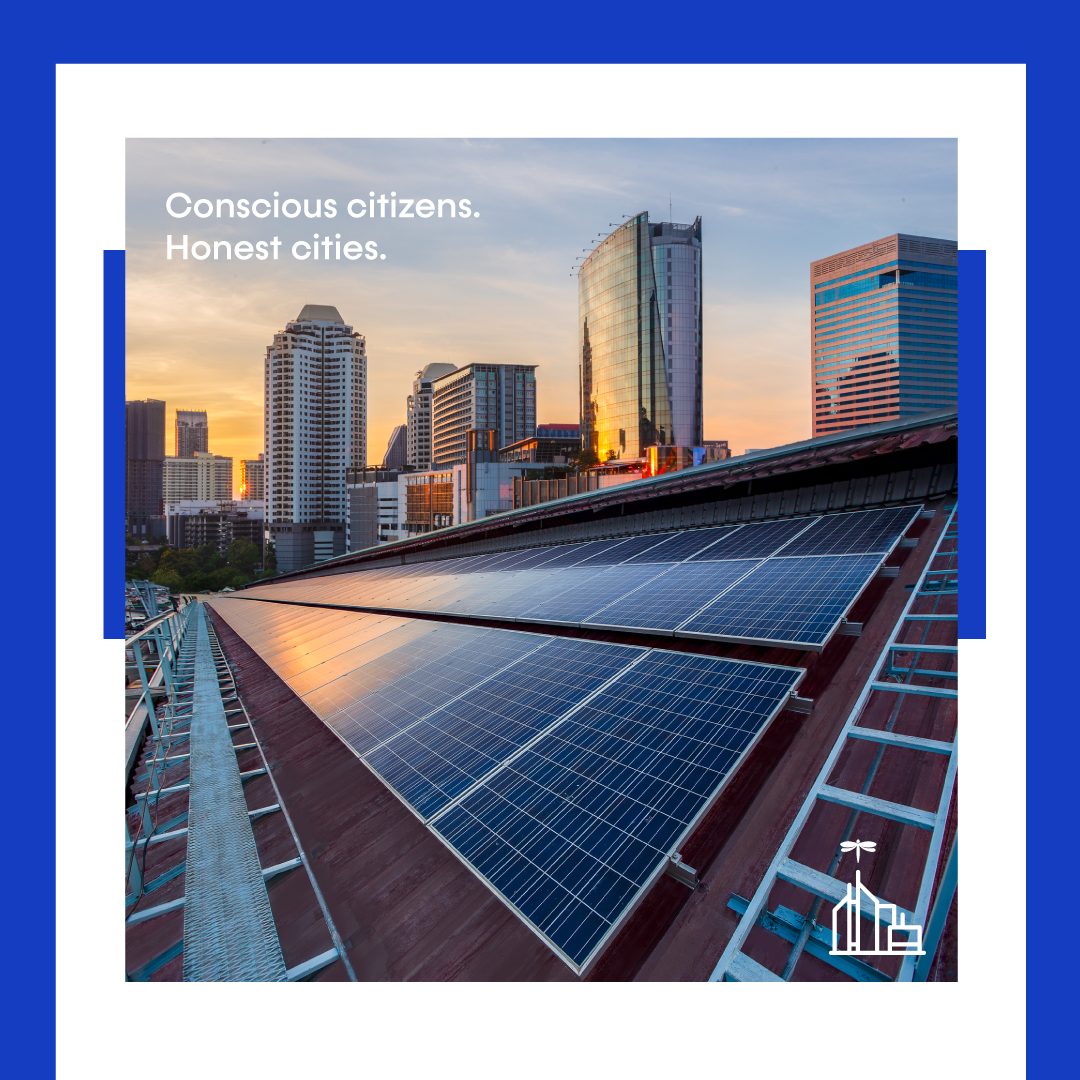
According to multiple sources, 75% of the world’s population will live in cities by 2050. And within cities, more than 50% of the population will live in megacities, i.e. cities with more than 10 million inhabitants.
Therefore, our quality of life will depend on the technological and digital adaptation of these cities to people.
How can we adapt technology to achieve our maximum well-being in cities?
There are multiple solutions, many of them implemented in different cities around the world and that have IoT technology to do so. To aim these results, we offer high-end professional solutions based on IoT technology in order to help citizens to know better the world around us.
Which applications should be monitored in the city?
- Air Quality in cities
- Acoustic and Noise levels (dBA)
- Waste Management: Obtain high-quality service to increase citizens’ well-being
- Traffic Congestion & Parking Management to avoid loss of time searching for a parking spot.
- Buildings: Monitoring and management systems
- Irrigation at parks and green areas
If the city you live in were a Smart City it must comply with the 5 Rs of sustainability: Reduce, Re-use, Repair(able), Refurbish(able), Recycle.
We face Climate-Change through IoT
The integration of technology in cities makes them more livable and sustainable. By combining innovation and citizen awareness we manage to improve the quality of life in cities, be more efficient and profitable, increase revenue through better functioning of public infrastructure and improve sustainability and compliance with environmental legislation.
Climate change worsens > Data transparency > Lower risks for society > Competitive cities
Take care of the environment around us. We deserve a technology that cares.
The planet demands us to accelerate Climate Change solutions. We need a more sustainable world and we need it now. It is mandatory and urgent to develop mechanisms to assure World sustainability.
Technology and more specifically IoT is one of the most accurate and secure solutions already available to measure key parameters in a safe and certified way, being able to take decisions and implement actions with high impact in order to overcome all the present and future challenges. There are different global initiatives that, as a test, imagine the future of people in cities, always seeking maximum well-being and the smallest footprint or impact on the planet.
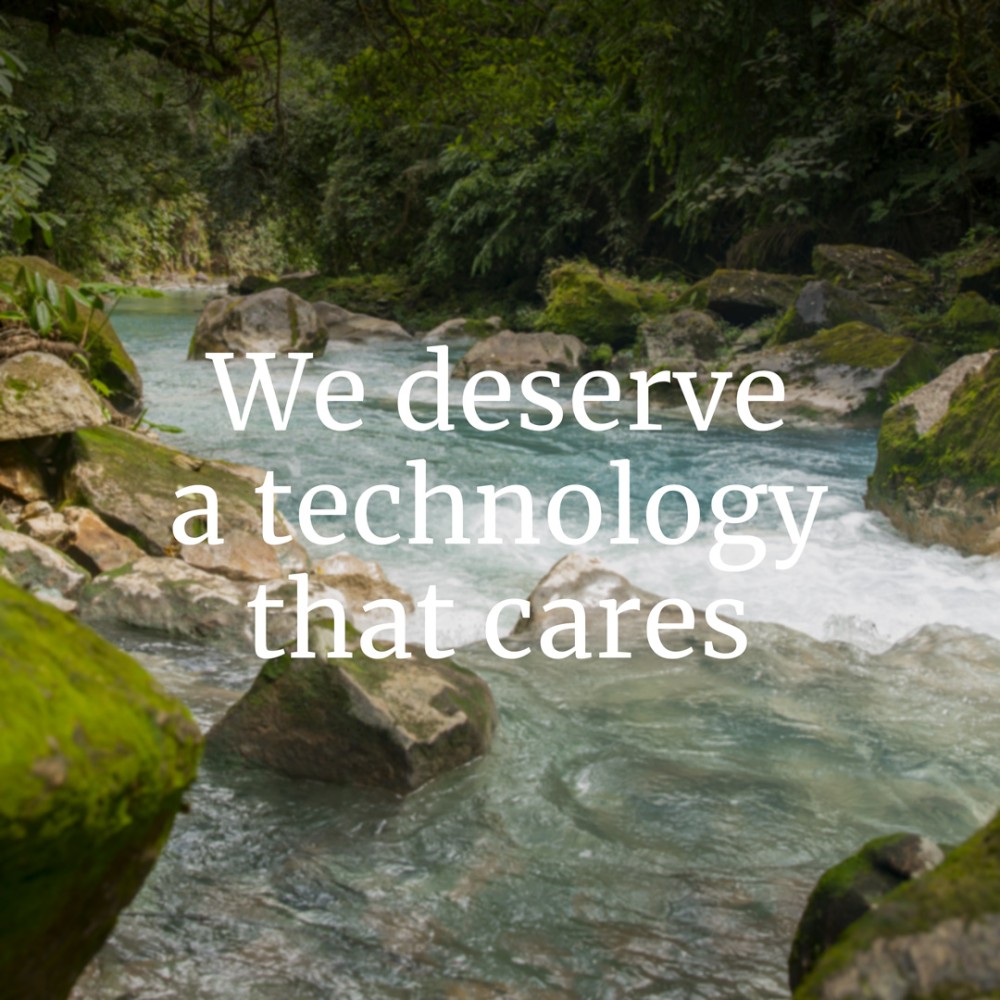
Thus, for example, the company OCEANIX is designing a floating city project in the port of Busan, in South Korea, which will be 100% sustainable and which will house 12,000 inhabitants in 63 hectares on the ocean. It will obtain its own drinking water thanks to water filtering and recycling systems.
It is a prototype but it is another example of ideas in development and how technology is always at the service of improving people’s well-being in order to solve challenges. In this case, the rising sea level as a consequence of climate change is the problem to be solved.
Libelium One, the IoT device that makes the difference
Libelium One is the result of an in-depth analysis by the Libelium team. A careful R&D continuous effort. We want to guarantee food security, protect the ecosystems and ensure sustainable use of water. But we can only make the best decisions if we base them on the best data.
Libelium has paid attention to these defying challenges to assure agrifood security, protect ecosystems and ensure sustainable water use. Lack of standardization in the IoT Business affects all their areas: connectivity, interoperability, usability, power, language and security. This is the most important problem for IoT to become a market standard.
➕ Flexible ➕ Accurate ➕ Configurable ➕ Secure
It brings together 3 features that no other device on the market has had so far: Interoperable, easy to use and sustainable.
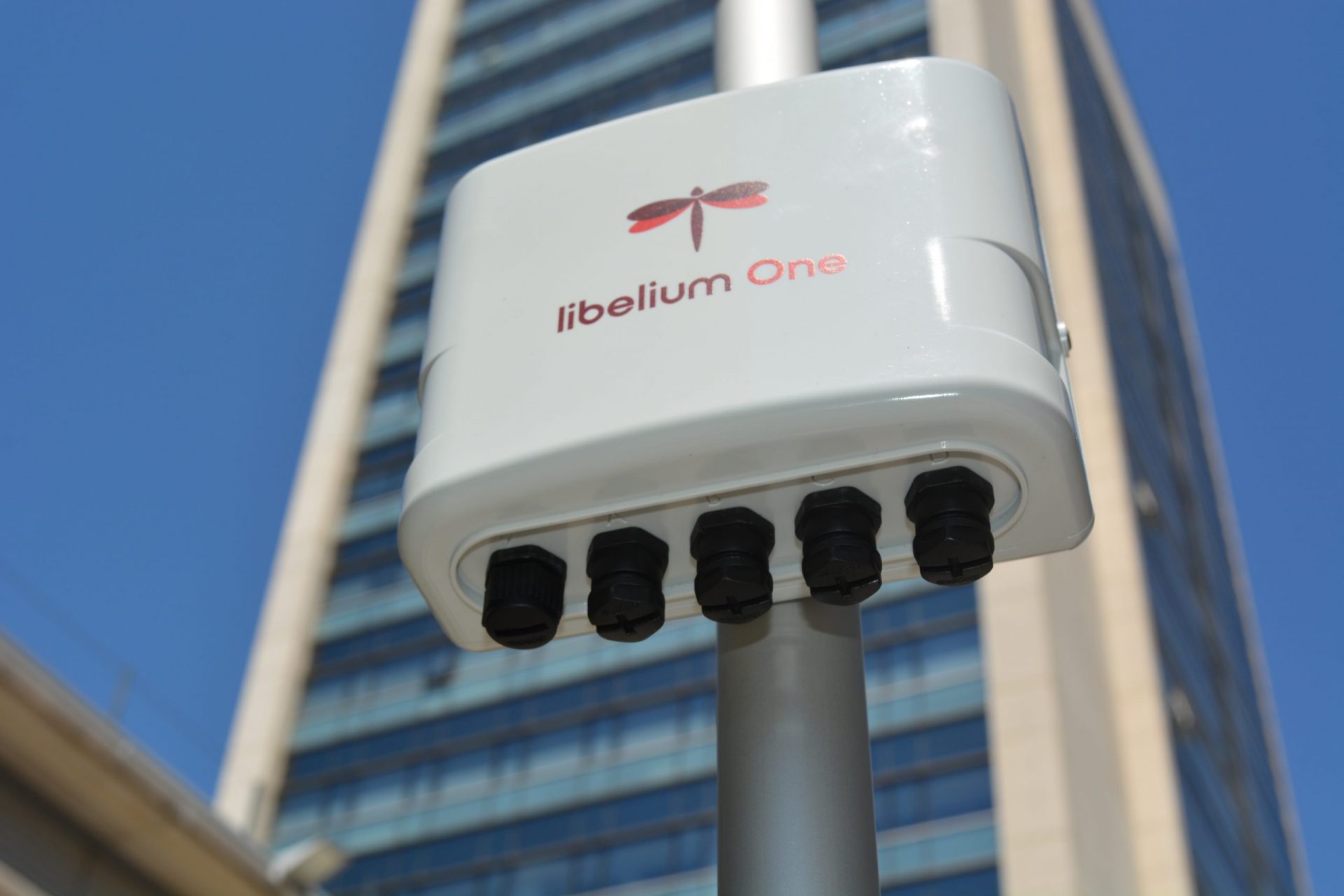
Libelium One is an ultra-low-power wireless IoT gateway
Libelium One has been designed for continuous monitoring of a huge range of parameters covering the most relevant IoT applications. Thanks to automatic sensor detection, no programming is needed for deployment. Remote configuration can be done wireless through the Libelium platform. Easy and quick installation on walls or poles in combination with a solar panel to maximize its performance.
Here you can find some of the main features and certifications:
- Maximum accuracy sensors
- Probe autodetection: connecting any probe to any One device
- Plug and Play device ready to be installed in the field
- Easy installation, no need for qualified technicians
- Any integrated sensor can be connected to any socket for maximum configuration flexibility
- Suitable for a diverse range of applications
- Node firmware remote update (OTAP)
- No programming = no code
Fully certified:
- FCC: Federal Communications Commission – USA
- IC: Industry Canada – Canada
- CE: Conformité Européenne – Europe
- UKCA: UK Conformity Assessed
1) Easy to use
Securing the use of the minimum number of sensors possible to measure parameters, isn’t it always a more interesting proposition?
Including simple and universal communication languages and protocols also increases sustainability.
Maximizing the full potential of all design processes to achieve smaller external cases and internal components reduces environmental impact. Permitting our solutions to be able to communicate with other competing sensors is also part of our commitment to wellbeing.
Limiting installation processes to simple, easily applicable processes is another way to continue to help the environment.
Enabling, in short, to make the World a better place thanks to the small contributions of each and every one of us together.
2) Interoperable
As we are in an interconnected and globalized world, the technology we use must allow us to communicate more easily and quickly. For that reason, different software computer systems are linked up with one another making possible automated data sharing. With so many complex networks, interoperability is the key factor to bear in mind in this new era of datacratization (taking action based on data).
The organizations can take advantage of these benefits:
- Increased productivity: The time required to process data is reduced and organizational efficiencies increase.
- Reduced costs: Fewer resources or additional maintenance is required.
- Reduced errors: Information systems that operate in isolation are more likely to hold redundant information.
- Better data protection
3) Sustainable
The IoT revolution is here to help us, offering maximum simplicity of use so that anyone who needs to apply IoT technology to solve any challenge and obtain results can do so without the need to be an engineer. Because sustainability is also about democratising access to technology, making it easy for everyone, allowing technological solutions to be applicable to any problem, no matter how small.
This is our commitment at Libelium: we want to help people and companies to benefit from the full potential of IoT to achieve a more competitive, but also more datocratized and sustainable society.
The largest fluvial aquarium in Europe has already placed its trust in Libelium One
Libelium One can control a great variety of environments due to the wide range of environmental parameters that can be measured such as, water quality, ground properties or weather conditions.
In this context, the Aquarium of Zaragoza is using One to maximize the quality of life of the different animals.
This is the most important fluvial aquarium in Europe, it integrates different river ecosystems of the world. There are more than 5000 animals of more than 350 species from the 5 rivers represented (Nile, Mekong, Amazonas, Darling-Murray and Ebro). Each ecosystem has different environmental conditions, hence the Aquarium labor was to replicate the different ecosystems in the different tanks where the distinct species inhabit.
With this wide variety of ecosystems, measuring environmental parameters becomes a complicated task. The aquarium needs to measure water quality values such as pH, conductivity or ORP, environmental parameters such as luminosity, temperature and humidity, and soil parameters to preserve the vegetation of each of the rivers in the Aquarium.
Since the Aquarium’s employees are biologists and not technologists, the plug-and-play and non-programming features of One are highly valued to the Aquarium.
Technology tested by leading universities
Jumping to a more human environment, Libelium One is also being tested by several universities in Spain, Italy, Ireland and Mexico to improve the sustainability of their water system and green areas. They are testbed labs to enhance One features and performance in view of an improved greener and healthier urban planification, for students and citizens.
In fact, Libelium One is the perfect partner to implement urban policies on green spaces. Urban living limits access to nature and can increase exposure to certain environmental hazards, such as air and noise pollution. Urban greening policies are revitalizing communities, reducing financial burdens of healthcare and increasing quality of life.
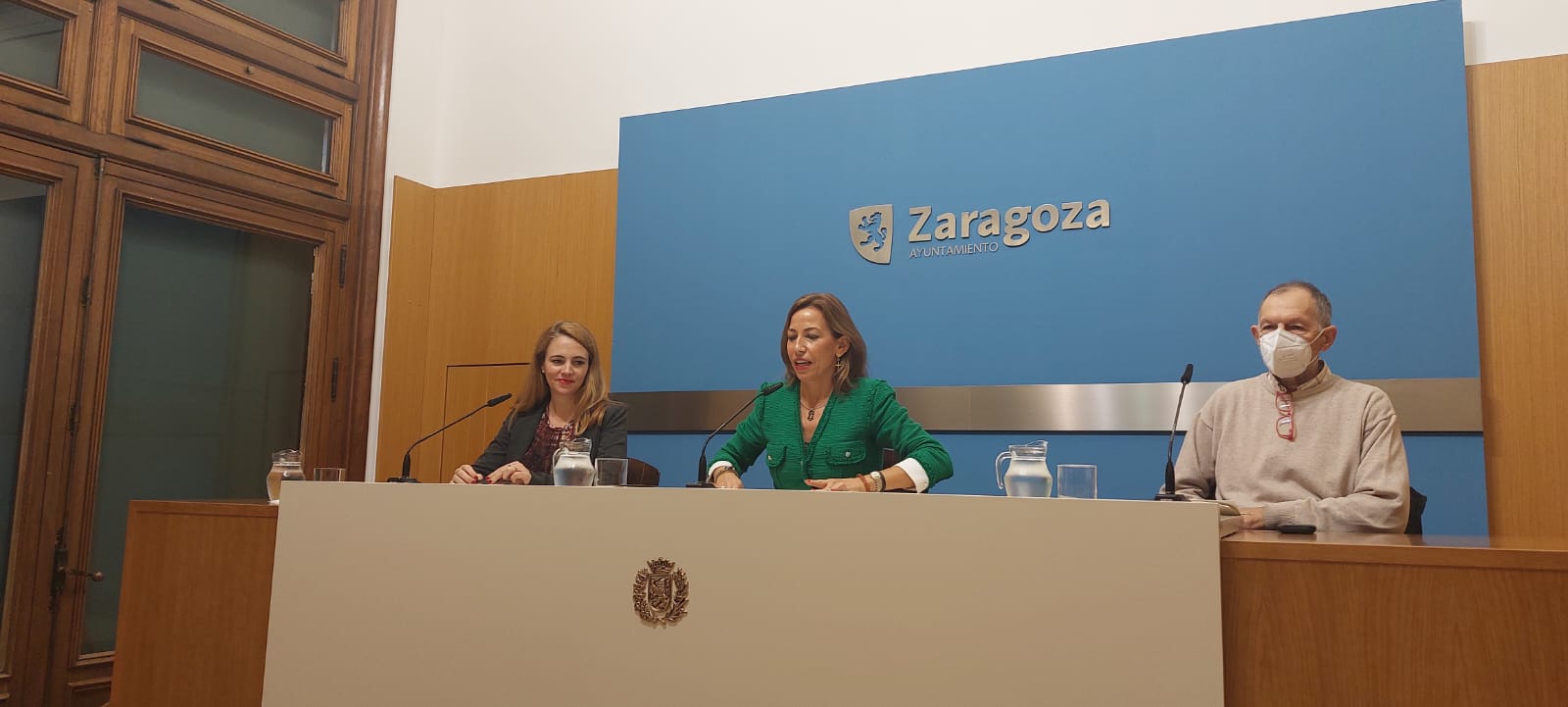
In Zaragoza, the so-called “Bosque de los Zaragozanos” (Forest of the citizens of Zaragoza) is a City campaign to transform wasteland spaces to greener ones by planting trees. The municipality has started the second phase of the project, which is much more ambitious.
This second forest is sustainable and smart as it is related to the city’s goal of using data and technology for environmental sustainability through a pilot project to be undertaken by the Libelium company.
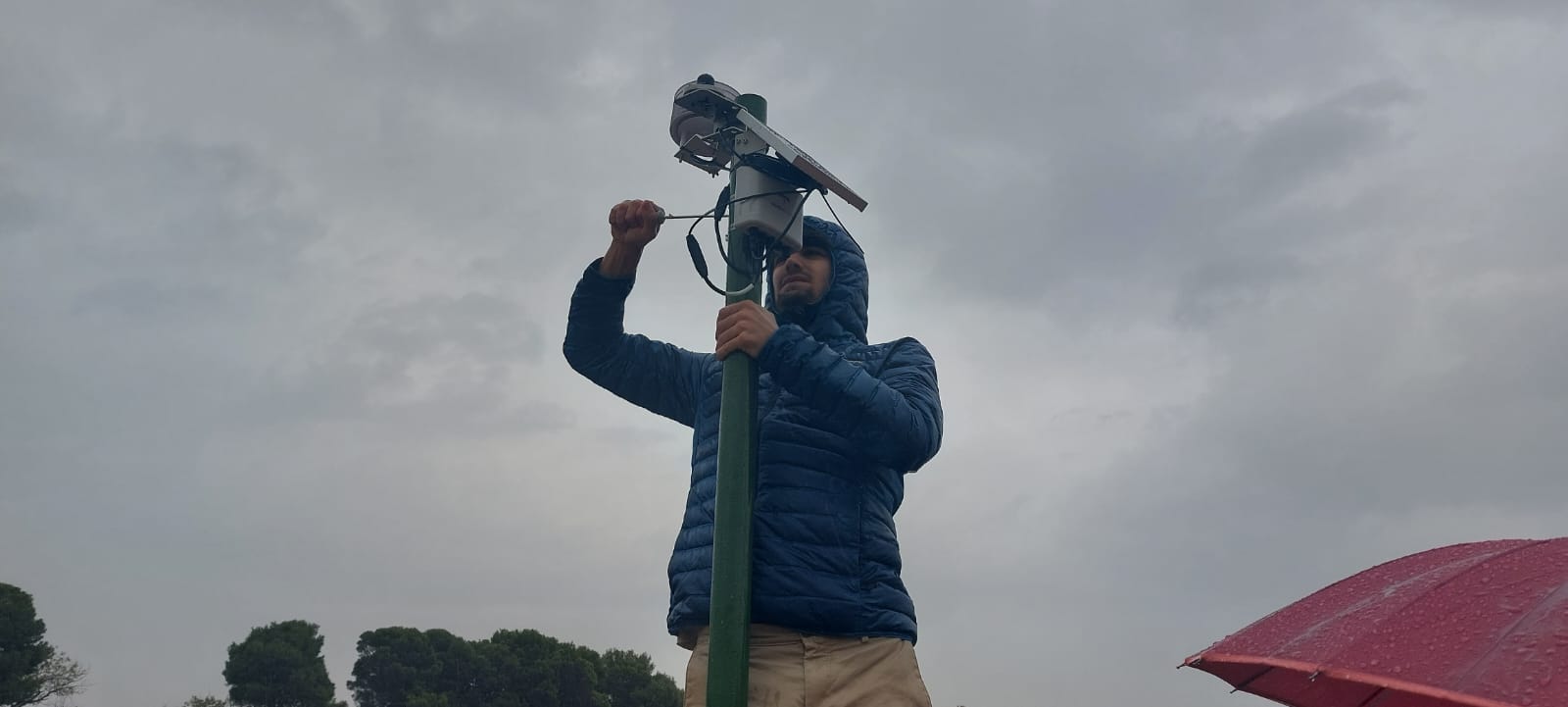
Two Libelium One nodes were installed to measure soil temperature and humidity to make irrigation decisions in response to water needs and to monitor trees. Air temperature and humidity will also be monitored to better maintain the local species. It will also be possible to monitor solar radiation, which indicates the success of irrigation tasks. So far, more than 56,000 trees have been planted.
The importance of technology to achieve Sustainable Development Goals (SDGs)
IoT and data analytics contribute to solve some of the most important problems in the world by: Monitoring parameters, Analyzing information, Automating processes and Communicating info to help governments, companies and citizens to take action.
The United Nations (UN) has identified science, technology, and innovation as one of the primary “means of implementation” to reach the goals by 2030. By increasing the efficiency and efficacy of sustainable development across many industries, digitalization significantly contributes to meeting the SDG objectives.
And these were the core thoughts when we started creating Libelium One. We put the focus on sustainability, we needed a product able to accomplish SDGs not only in the way it is used but also in the way it was designed to be energy efficient, reducing consumption and carbon footprint.
Discover How IoT helps to reach Sustainable Development Goals 2030
IoT technology works in favour of the SDGs and which projects have been deployed worldwide according to each objective..


